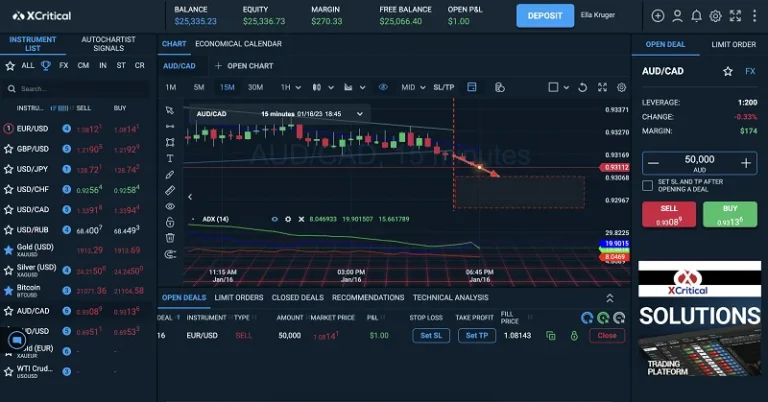These ancient guardians relied totally on their status to accumulate business. According to the article, Brycki’s firm has prevented utilizing custodians for its buyers. The increasingly popular funding platforms in Australia embrace Hub24, Praemium, BT Panorama, NetWealth, Macquarie WRAP.

Most exchanges’ interfaces are designed so customers by no means even have to instantly work together with their wallets. This user-friendliness means custodial wallets are typically preferred by newcomers, to whom the comfort factor of not having to handle their private key themselves is a giant benefit. Choosing between a custodial wallet and non-custodial wallet is a key decision in phrases of securing your cryptocurrency holdings. Some favor a custodial trade account, while others favor non-custodial wallets, and a few find yourself utilizing a combination of the two. You’ll also have to determine if you’d like a scorching or chilly wallet, and whether or not to unfold your cryptocurrency holdings between numerous crypto wallets. Regardless of your selection, be sure to at all times observe greatest safety practices.
Custodial Vs Non-custodial Wallet: Abstract
So, if you’d like extra management and safety over your crypto, non-custodial wallets are the method in which to go. Choose ROVI non-custodial wallet that securely holds your information and manages assets by implementing robust security standards. Custodial wallets normally require web entry to work together with their providers. But, to access non-custodial wallets you do not need constant internet entry, making them more handy for customers.
They do not outsource to any institution, so as a result, no institution can refuse to complete transactions. While it may be an easier possibility, users want to notice that they’re exposed to the danger of exploitation or hacks that the wallet provider would possibly undergo. There have been a number of hacking circumstances, together with loss of funds held in custody. In crypto phrases, the keys serve the purpose of receiving inbound cryptocurrencies and deal with the encryption of outbound transaction information. While depositing cryptocurrency to a pockets, a public key is required to be entered as the deposit handle. For crypto customers seeking the freedom provided by a non-custodial pockets there are a variety of trusted providers in addition to BitPay Wallet.
How A Custodial Agreement Works
Mobile wallets and browser-based wallet functions usually fall into the “hot wallet” class. Although they tend to supply users self-custody, they’re more weak to assaults than chilly storage hardware wallets that signal transactions offline. When buying cryptocurrencies from a crypto trade, you’ll want some sort of crypto wallet for holding your belongings. Also, a crypto pockets is crucial for interacting with blockchains and executing orders. This pockets tackle is an identifier that directs funds to and from the right place whenever you interact with the blockchain and helps buyers to see where their funds are. But with custodial wallets, you probably can recuperate your access as a outcome of they maintain your non-public key.

This Learn article will have a look at what crypto wallets are, and what the difference is between non-custodial and custodial wallets. With custodial wallets, personal keys are held by a third celebration, e.g. a crypto exchange or a pockets provider, which means users don’t really management their crypto assets. Instead, users need to trust that the third-party custodian will secure their crypto for them. Turned off when not in use, these hardware, non-custodial crypto wallets must be linked to a pc or mobile device via USB ports or bluetooth to transact.
What’s A Non-custodial Wallet?
Unlike custodial wallets, non-custodial wallets aren’t usually particularly user-friendly. Beginners may have a steeper studying curve and require some time earlier than getting https://www.xcritical.com/ to know the means to use these wallets. As most of you’ve already guessed, non-custodial wallets do not require any type of third-party involvement like custodial wallets do.

In this article, you’re going to get to understand the difference between custodial and non-custodial wallets, their execs and cons, and the way OnGraph might help you build crypto wallets. Outsourcing your pockets custody means that you are giving away entry to your personal set of private keys. In quick, the person isn’t answerable for protecting their personal key to their pockets, as they have already got positioned their trust in a business into keeping their belongings protected. However, many CEXs also provide non-custodial wallet options, such as Binance Chain Wallet, Coinbase Wallet and Crypto.com DeFi Wallet. Meanwhile, a personal key is akin to the password used to entry your digital belongings.
Custodial wallets were the primary to take off in the crypto world, yet their reputation is fading due to instances of bankruptcy and mismanagement of consumer funds (inherent to third party ownership). And it can be a working one if the consumer doesn’t count on to discover Web3 and DeFi in-depth or is not bothered by third get together risks. If so, try the Ethereum Smart Contract Programming a hundred and one course at Moralis Academy! This course teaches students about the key concepts of programming cash on Ethereum. We offer you all of the instruments you’ll need to begin creating your own smart contract initiatives. Plus, this course is an ideal method to start developing your Web3 developer portfolio.
However, when you do end up dropping entry to your crypto wallet or neglect your password, there’s a back-up process. Typically, you’ll have generated a sequential string of 12, 18 or 24 words that’s displayed upon organising your crypto pockets. Once you’ve purchased cryptocurrency, you must decide whether to use difference between custodial and non custodial wallet a custodial vs. non-custodial pockets to store your funds. The custodian additionally won’t be liable for withholding a half of the distribution that would be used to cover any income taxes that are due. A custodial agreement is an association wherein one holds an asset or property on behalf of the actual owner (beneficial owner).

Aside from the advantages and security that non-custodial wallets deliver, the Crypto.com DeFi Wallet has also integrated DeFi offerings, including DeFi Earn. It also contains a Wallet Extension so users can seamlessly access their funds from a browser and make transfers from different gadgets. Furthermore, desktop wallets fall into the custodial hardware pockets class. These wallets are not linked to the internet and are excellent for making frequent transactions securely. However, such wallets require users to maintain protocols updated, unlike main hardware wallet suppliers that always prompt customers to install updates.
Kinds Of Wallets
Unlike custodial wallets, customers can simply access their stored funds in any state of affairs and with out KYC, as there is not a need for a affirmation notice from any third party. Instant withdrawals can be found in non-custodial wallets, while some CEXs require a sure time to course of transactions. There’s an old saying in crypto circles, “not your keys, not your crypto”, which basically means whoever holds a private secret is the one true and verifiable owner of the funds in its corresponding pockets. Some crypto users say this implies custodial pockets customers don’t really “own” their crypto, since they don’t control the non-public key.

Non-custodial wallets are typically a bit more technically complex than custodial wallets, so they’re typically more favored by experienced crypto users. A custodial pockets service (like Coinbase or Kraken) holds on to the personal key, so it is responsible for safeguarding a user’s funds. A non-custodial wallet (also known as a self-custody wallet) then again, gives users full management over their private key, and with it sole duty for safeguarding their holdings. Other custodial wallet options include investing in crypto ETFs and ETPs. These newer choices are gaining reputation, particularly with institutional investors seeking extra investment publicity to cryptocurrency and tokens.
The familiarity of in style exchanges may play a consider deciding the right kind of pockets for you if you’re already comfy using one trade or one other. Any public and private key pair can perform as a crypto pockets — even when written on a piece of paper from your notebook. Cryptopedia doesn’t assure the reliability of the Site content and shall not be held answerable for any errors, omissions, or inaccuracies. The opinions and views expressed in any Cryptopedia article are solely these of the author(s) and do not replicate the opinions of Gemini or its administration. The data offered on the Site is for informational purposes only, and it does not represent an endorsement of any of the services and products discussed or funding, monetary, or trading recommendation.
Using a custodial wallet requires a substantial amount of trust within the establishment, which highlights the significance of doing all your homework and only using a trusted and dependable exchange. Part of that process should involve inquiring whether they’re regulated, how they hold your private keys secure and whether or not they provide any insurance coverage coverage. With a non-custodial pockets, you may have sole management of your personal keys, which in flip control your cryptocurrency and show the funds are yours. Both custodial and non-custodial wallets have their very own sets of advantages and limitations. For users who prioritise ease of use and backup recovery choices, custodial wallets are a wise answer.